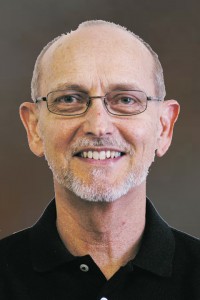By Bill Webb
Humankind has struggled with the matter of mental disorders — or mental illness — as long as people can remember.
And the same can be said for Christians, from the time of Christ to the present moment. That comes from fear or misunderstanding (or both) about psychological disorders, experts say.
“There may still be church diehards who lack the understanding that we can’t ‘pray away the blues,’” said Kristen Sager, a private psychotherapist, licensed clinical social worker and clinical counselor at High Point University in North Carolina.
“There is often an unspoken blame or judgment that we don’t apply to physical ailments,” she said. “Churches could benefit from the de-stigmatizing that comes with exposure.”
 Mental illnesses, Sager and other experts say, are not like diseases of the body. Chemotherapy won’t eradicate the illness, nor will a couple of cardiac bypasses improve the health of the person who suffers from a psychological disorder.
Mental illnesses, Sager and other experts say, are not like diseases of the body. Chemotherapy won’t eradicate the illness, nor will a couple of cardiac bypasses improve the health of the person who suffers from a psychological disorder.
Mental health is complex. Mental disorders can have devastating effects on a person, and they can result in behavior that may be confusing.
In the Gospels, Jesus acknowledged several people whose symptoms and behavior resembled those of people who today would be diagnosed with mental disorders. The fact that Christ acknowledged such people was somewhat unusual because generally they were either treated as outcasts or hidden away. They were a source of shame and embarrassment to their families.
Even religious leaders were dismayed and angered that Jesus would not only give the time of day to such people, but that he chose to offer conversation and relief to these tormented and abused souls, often in miraculous ways.
In Jesus’ day — and today — people feared what they didn’t understand. And fearful people come up with their own rationale for what they witness in the lives of a few. Some people still act as though mental disorders are self-inflicted — indicative of presumed sin against God or prompted by a lack of faith.
The stigma of disorders like clinical depression, bipolar disorder and schizophrenia should not be so great these days in America. Mental disorders are like divorce and cancer in the sense that almost every family has been touched by them. Such disorders are pervasive, but they also are more treatable than ever before through counseling, therapy and medications.
Mental illness is on the agenda of schools, businesses and law enforcement today in part because it is so prevalent in society and day-to-day events in common public places.
What is not so clear these days is how churches can intentionally reach out to members and others struggling with mental disorders. Few would argue that churches do not care. On the contrary, a number provide a myriad of ministries to hurting people.
Doyle Sager is senior pastor of First Baptist Church of Jefferson City, Mo., which has offered support groups for families of suicide trauma and regularly provides meeting space for groups that provide support such as the National Alliance on Mental Illness, Al-Anon and Dementia Care Givers.
 “I mentioned in a more recent sermon that I felt the church should start saying the words ‘mental illness’ out loud to get over the stigma,” he said.
“I mentioned in a more recent sermon that I felt the church should start saying the words ‘mental illness’ out loud to get over the stigma,” he said.
Talking about mental illness is a good first step for churches, added Kevin Payne, pastor at First Baptist Church of Independence, Mo.
“I personally find myself mentioning the issue of mental illness and modern treatments fairly often in sermons,” he said. “I also talk about it quite often with members. Just in the last two months, I have referred two different members to a local Christian-oriented counseling organization here in Independence.
“One of the things … pastors need to do frequently is to give permission for Christians to seek help in this area of life, with either therapy, medication or both,” Payne said. “There are still those who see mental health issues and the use of psychiatric treatments as something Christians should avoid.”
Walter Coplen of Columbia-based Coplen Christian Counseling said he is glad to hear people like Rick Warren, pastor of Saddleback Church, talk more about mental illness. Warren and wife Kay lost their son, Matthew, to suicide after he struggled with mental illness for many years.
 Sometimes it’s just easier to remain in the dark on mental illness, Kristen Sager said.
Sometimes it’s just easier to remain in the dark on mental illness, Kristen Sager said.
“At the risk of stating the obvious, we tend to avoid discomfort, including things we don’t understand,” she said. “I would guess that most churches, like most individuals, lack basic knowledge about mental illness, its origins, its treatment and its prognosis.
“Don’t get me wrong, I believe prayer is a powerful thing. But unless mental illness has touched someone personally, it can be very difficult to conceive of its debilitating forces,” Sager said. “We still struggle to treat mental disorders like physical disorders or diagnoses.”
Myths abound, particularly for relatively unknown disorders like psychotic ones, Sager added.
“Many people think mental illness is synonymous with violence,” a myth perpetuated by a spate of school, theater and mall shootings by people later discovered to have a mental illness.
“Those who lack education on mental illness may lack understanding of how to communicate with those about their illness or how to communicate with them in general — fear of ‘triggering’ them; fear of hearing their troubles then not knowing how to respond; discomfort with how to set boundaries,” she said.
Churches are all about connecting, she added. But “when we don’t know how to connect with someone who has a mental illness, we inevitably encounter obstacles to welcoming them into our circles.”
